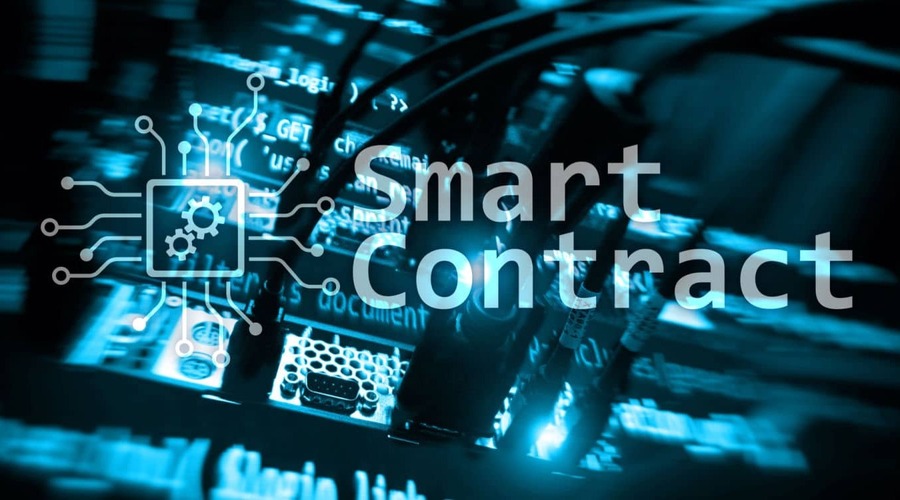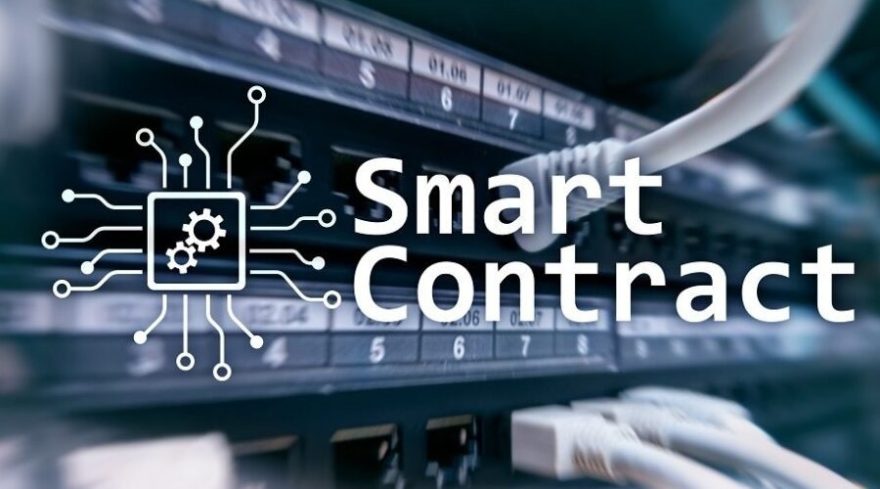In today’s digital age, as technology continues to reshape various industries, the concept of smart contracts has emerged as a groundbreaking innovation. Smart contracts are self-executing agreements with predefined terms and conditions encoded on a blockchain network. These contracts not only automate and streamline transactions but also enhance security, transparency, and efficiency in a wide range of sectors. This article aims to provide a comprehensive understanding of smart contract, exploring their definition, functionality, benefits, and potential applications.
Definition of Smart Contract
A smart contract can be defined as a computer program that automatically executes, controls, and verifies the performance of a contract without the need for intermediaries. It is a set of rules and instructions written in code, stored on a decentralized blockchain network.
How Smart Contracts Work
Smart contracts operate on the principle of “if-then” statements, where the fulfillment of certain conditions triggers predefined actions. These conditions and actions are encoded in the contract’s code, which is stored on a blockchain. When the conditions are met, the contract self-executes, enforcing the terms agreed upon by the parties involved.
- Key Elements of Smart Contracts: Smart contracts consist of three fundamental elements: agreement terms, digital signatures, and self-executing code. The agreement terms outline the conditions and obligations to be fulfilled, while digital signatures ensure the authenticity and integrity of the involved parties. The self-executing code, typically written in a programming language like Solidity, enables the automatic execution of the contract’s terms.
- Execution and Validation Process: Upon fulfilling the predetermined conditions, the smart contract automatically triggers the execution of the agreed-upon actions, such as transferring funds or updating records. The execution process is verified and validated by blockchain nodes, ensuring the transaction history’s consensus and immutability.
- Integration with Blockchain Technology: Smart contracts are typically deployed on blockchain networks, such as Ethereum, that provide a decentralized and transparent environment for their execution. The blockchain acts as a distributed ledger, recording all contract-related transactions and making them accessible to all participants. This decentralized nature eliminates the need for a central authority, making transactions more secure and transparent.
Benefits of Smart Contract
Smart contracts offer numerous benefits compared to traditional contracts. Let’s explore:

- Automation and Efficiency: One of the key advantages of smart contracts is their ability to automate and streamline transactions. By removing the manual intervention required in traditional contracts, smart contracts eliminate the need for intermediaries and significantly reduce the time and effort involved in executing agreements.
- Enhanced Security: Smart contracts leverage the security features inherent in blockchain technology. Cryptographic techniques ensure the integrity and confidentiality of transactions, making them highly secure against tampering and fraud. The decentralized nature of blockchain also mitigates single points of failure, making it extremely difficult for malicious actors to manipulate or alter contract terms.
- Transparency and Auditability: Since smart contracts operate on a blockchain, all transactional information is recorded transparently and immutable. It provides a high level of transparency and auditability, allowing participants to trace the history of transactions and verify the integrity of the contract execution. Such transparency reduces the potential for disputes and enhances trust among the involved parties.
- Cost Reduction: By automating contract execution and eliminating intermediaries, smart contracts can significantly reduce transaction costs. Traditional contracts often involve fees associated with intermediaries, such as lawyers or notaries, and manual paperwork. Smart contracts streamline these processes, resulting in cost savings and faster transaction settlements.
- Trust and Disintermediation: Smart contracts enable trust between parties without intermediaries. The self-executing nature of smart contracts ensures that the agreed-upon terms will be enforced automatically, removing the reliance on trust in the counterparty. This disintermediation can foster more direct and efficient participant interactions, reducing friction and enhancing collaboration.
Challenges and Limitations of Smart Contract
While smart contracts offer numerous benefits and exciting possibilities, they also face certain challenges and limitations. It is essential to understand these factors to effectively navigate the implementation and adoption of smart contracts. Let’s explore some of the key challenges and limitations associated with smart contracts.
- Scalability and Performance: As smart contract adoption grows, scalability and performance become critical challenges. Blockchain networks need to handle significant transactions and execute complex code within acceptable timeframes. Efforts are underway to improve scalability through technologies like sharding and layer-two solutions.
- Regulatory and Legal Implications: The regulatory and legal frameworks surrounding smart contracts are still evolving. Issues such as jurisdiction, enforceability, and liability must be addressed to ensure smart contracts’ legal validity and acceptance. Government bodies increasingly recognize the importance of adapting regulations to accommodate this emerging technology.
- Code Vulnerabilities and Bugs: Smart contracts are subject to coding vulnerabilities and bugs that can lead to financial losses or security breaches. Malicious actors can exploit flaws in contract logic or vulnerabilities in the underlying blockchain platform. Rigorous code audits, security best practices, and ongoing monitoring are essential to mitigate these risks.
- Lack of Standardization: The lack of standardized protocols and programming languages for smart contracts hinders interoperability and limits widespread adoption. Efforts are underway to establish industry standards and promote compatibility between blockchain platforms and smart contract frameworks.
Future Outlook of Smart Contract
Smart contracts have gained significant traction in recent years, revolutionizing the way agreements are made and executed. As we look into the future, the potential impact and possibilities of smart contracts continue to expand across various industries. Here, we explore the future outlook of smart contracts and the developments that lie ahead.
One of the key areas of growth for smart contracts is in the field of decentralized finance (DeFi). DeFi has emerged as a prominent use case for blockchain technology, and smart contracts play a pivotal role in enabling decentralized lending, borrowing, trading, and other financial activities. As DeFi continues to mature and attract more participants, smart contracts will become even more integral to the infrastructure of the decentralized financial ecosystem.
Interoperability is another aspect that holds immense promise for the future of smart contracts. Currently, smart contracts are primarily developed and deployed on specific blockchain platforms, such as Ethereum or Binance Smart Chain. However, efforts are underway to establish cross-chain interoperability protocols that will enable smart contracts to seamlessly interact and operate across multiple blockchains. This will foster greater collaboration and integration among different blockchain networks, expanding the potential use cases and reach of smart contracts.
Scalability has been a persistent challenge for blockchain technology, and it also impacts the scalability of smart contracts. As the demand for smart contracts grows, addressing scalability becomes crucial to handle the increasing transaction volumes. Layer 2 solutions, such as state channels and sidechains, aim to alleviate these scalability limitations by enabling off-chain computation and settlement, while still leveraging the security and finality of the underlying blockchain. These solutions hold the potential to significantly enhance the scalability of smart contracts, enabling faster and more cost-effective execution.
Conclusion
Smart contracts have emerged as a transformative solution for digital transactions, revolutionizing various industries. By automating agreements and leveraging the inherent security and transparency of blockchain technology, smart contracts offer numerous advantages, including increased efficiency, enhanced security, and reduced costs. Despite challenges related to scalability, regulation, and standardization, the future outlook for smart contracts is promising. As governments, industries, and technology developers continue to embrace this technology, smart contracts will play a vital role in reshaping the way we transact and interact in the digital era.
FAQs
Are smart contracts legally binding?
Smart contracts can be legally binding, but the enforceability may vary depending on the jurisdiction and the specific terms of the contract. It is essential to consult legal experts and ensure compliance with applicable laws when utilizing smart contracts for important agreements.
Can smart contracts replace traditional contracts?
Smart contracts offer unique advantages but may not be suitable for all types of agreements. While they can automate and streamline certain processes, complex legal agreements involving subjective interpretation or human judgment may still require traditional contracts alongside smart contract implementations.
Which blockchain platforms support smart contracts?
Several blockchain platforms support smart contracts, with Ethereum being the most prominent and widely adopted. Other platforms like Binance Smart Chain, Cardano, and Polkadot also support smart contracts to varying degrees, each offering their own features and capabilities.
What happens if a smart contract has a bug?
If a smart contract contains a bug or vulnerability, it can lead to unintended consequences or potential exploits. However, the immutability of blockchain makes it challenging to modify deployed contracts. It is crucial to conduct thorough testing, security audits, and follow best practices to minimize the risk of bugs and vulnerabilities.
How can I learn to develop smart contracts?
To develop smart contracts, you can start by learning programming languages such as Solidity, which is commonly used for Ethereum smart contracts. Online tutorials, documentation, and interactive coding platforms can provide valuable resources. Additionally, participating in developer communities and engaging in hands-on projects will help you gain practical experience and deepen your understanding of smart contract development.
Can smart contracts handle real-world events and external data?
While smart contracts primarily operate within the blockchain environment, they can interact with external data through oracles. Oracles provide a bridge between the blockchain and real-world events, enabling smart contracts to make decisions based on external information.

